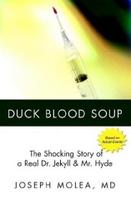Yesterday, I gave a brief dissertation (diatribe) about the benefits of POD. What about its dark, ugly underbelly?
Indeed it is there.
And it is in the form of a plethora of unreadable novels, memoirs and self-help guides. Let's face it: POD has made it too easy to get a book in print. Last month I commented on the difference between indie movies/music and self-pubbed books. The main differentiator is cost. Even a cheap indie movie will run $50k. And studio time isn't cheap either. But now any 15-year-old who gets a thumbs-up from his English teacher runs to a POD company and produces the thing in print in a couple of months.
And you'll find it all in POD: from the 115 self-help manual (you couldn't have needed too much help) to the 750 page novel (for $30.)
And the cost to produce it (as in, buying POD services) gets even cheaper. Look at Lulu, for example. If you are tech-savvy at all, you can produce your entire interior (they will give you templates) and exterior of the book (everyone has a friend who knows Photoshop). All you need to do is get your stuff converted to .pdf and you are good to go. Cost? Nothing. You can print as little as a single copy from Lulu at the cost of production (about $11.00 for a 300 page book.) They even ship for free if you total $25 or more, ala Amazon. The only cost comes in if you want it listed with the bookstores, which if I remember is something like $149. And the day you upload the files you can get it printed and shipped, too.
Now compare that to my expenses/time of getting published traditionally and you'll see I am in the red.
I am endorsing Lulu? On the contrary. I'm frightened. What has happened is the cost of getting published is being reduced down to zero--no different than creating a Word file and squeezing it out on a printer next to your nightstand.
And once that happens, how will we ever get through the list of titles? How will we ever find those worthy of our time?
Welcome to the wild, wild west.

